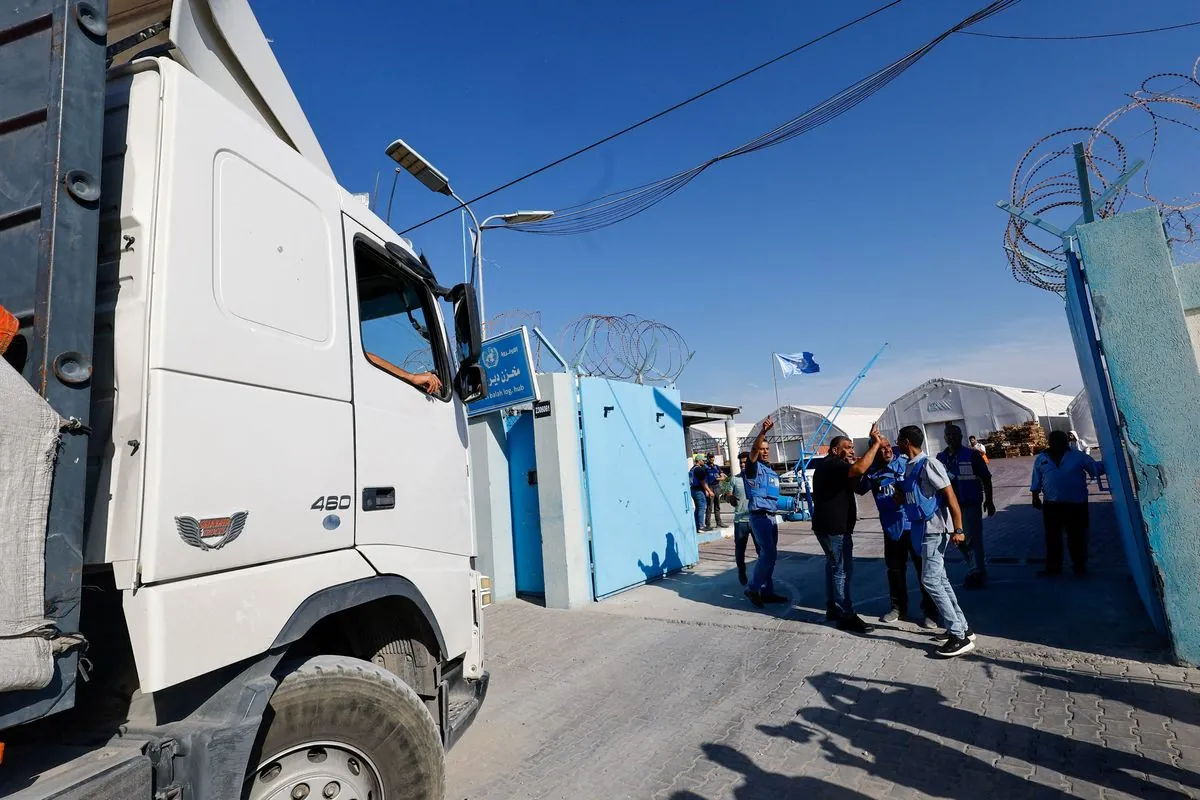The United Nations World Food Programme (WFP) has temporarily ceased operations in the Gaza Strip following a security incident on August 27, 2024. An armored WFP vehicle, clearly marked with UN insignia, was struck by at least 10 bullets near an Israeli military checkpoint, despite having received multiple clearances to approach the area.
The incident occurred at the Wadi Gaza bridge checkpoint, a strategic location in the center of the Gaza Strip. While no personnel were injured, the event has raised serious concerns about the safety of humanitarian workers in the region. The WFP, established in 1961, has been a crucial lifeline for many Gazans in the densely populated territory, which has been under a strict blockade by Israel and Egypt since 2007.
In response to the escalating humanitarian crisis, the United Nations Security Council is set to convene on August 29, 2024. The meeting, requested by Britain and Switzerland, will focus on the dire situation in Gaza, including the challenges faced by aid operations and the urgent need for a polio vaccination campaign.
The World Health Organization has reported a case of type 2 poliovirus in a 10-month-old infant, marking the first such occurrence in Gaza in 25 years. This development is particularly alarming given that polio was once a global epidemic and has been nearly eradicated through extensive vaccination efforts. The UN is now preparing to vaccinate an estimated 640,000 children in Gaza, a task made more challenging by the current security situation.
"Aid operations in Gaza are heavily restricted by hostilities, insecurity, and mass evacuation orders affecting aid transport routes and facilities."
The ongoing conflict, which began on October 7, 2023, has had devastating consequences for Gaza's 2.3 million residents. The Israeli military response to the initial Hamas attack has resulted in widespread destruction, displacement, and loss of life. Palestinian health authorities report at least 40,000 fatalities, while nearly the entire population has been forced from their homes.
The UN has consistently voiced concerns about the obstacles to delivering and distributing aid in Gaza. The territory's only power plant has frequently been damaged during conflicts, exacerbating the humanitarian crisis. The situation is further complicated by what UN officials describe as "total lawlessness" in the enclave.
As the international community grapples with the complexities of providing aid in a conflict zone, the incident involving the WFP vehicle underscores the challenges faced by humanitarian workers. The Geneva Conventions, which protect aid workers in conflict areas, seem increasingly difficult to enforce in the volatile Gaza Strip.
The UN's distinctive blue color, used for its vehicles and facilities in conflict zones, is meant to provide a measure of protection. However, this recent event raises questions about the effectiveness of such measures in ensuring the safety of humanitarian personnel.
As the UN Security Council prepares to address the crisis, the international community watches closely, hoping for solutions that will allow the safe delivery of crucial aid and the implementation of vital health initiatives in Gaza.
